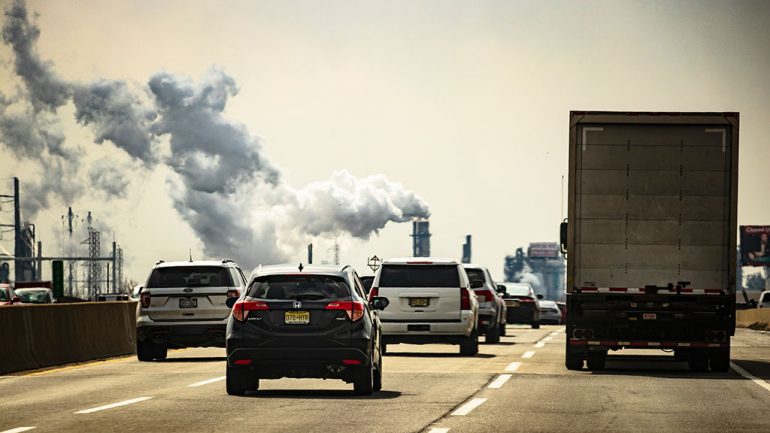
The U.S. Environmental Protection Agency (EPA) has submitted a proposal to the White House for review, outlining ambitious emissions reduction targets for new cars and trucks until 2032. The proposal, made public on Friday, suggests a significant 56% reduction in projected fleet average emissions by the 2026 model year. If implemented, this plan could have a substantial impact on the automotive industry and potentially lead to a substantial increase in electric vehicle (EV) sales.
According to the initial EPA proposal, automakers would need to produce 60% EVs by 2030 and increase it to 67% by 2032 to meet the stringent emission requirements. However, a group representing major automakers has criticized the plan, labeling it as “neither reasonable nor achievable.” In contrast, environmentalists, electric vehicle manufacturer Tesla, and several Democratic lawmakers are advocating for even tougher requirements.
The EPA aims to finalize these new emissions rules by March, and the draft final rule is currently undergoing interagency review after receiving over 250,000 public comments. This proposal is just one of three major vehicle rules being considered by the EPA, Department of Transportation (DOT), and the Department of Energy. These rules could significantly influence the types of vehicles Americans drive.
Concerns have been raised by a group representing major automakers, urging the Biden administration to make substantial changes to the proposed rules. The Alliance for Automotive Innovation, representing companies such as General Motors, Toyota, Volkswagen, Ford, Stellantis, and others, has warned that the rules might force a premature halt to the production of some gas-powered vehicles.
Deputy Transportation Secretary Polly Trottenberg acknowledged the industry’s concerns, stating that the agencies are working towards finding a balance that aligns with climate goals while considering the interests of the auto industry. Automakers have expressed worries about potential fines, with estimates reaching $14 billion, including significant amounts for companies like GM and Stellantis.
In addition to the EPA’s proposal, the Department of Transportation’s National Highway Traffic Safety Administration has suggested increasing Corporate Average Fuel Economy (CAFE) standards by 2032, with U.S. automakers seeking adjustments to the proposed annual increases for light trucks. Meanwhile, the Department of Energy has proposed changes in how electric vehicles are treated for compliance purposes, with concerns raised about a potential 72% devaluation of EV fuel economy. The discussions and decisions surrounding these proposals will likely have a profound impact on the automotive industry’s future and the transition to cleaner, more sustainable transportation.
Source: Reuters

Mike Floyd is a finance executive by trade and a car enthusiast at heart. As a CFO with a keen eye for detail and strategy, Mike brings his analytical mindset to the automotive world, uncovering fresh insights and unique perspectives that go beyond the surface. His passion for cars—especially his favorite, the Porsche 911, fuels his contributions to Automotive Addicts, where he blends a love for performance and design with his professional precision. Whether he’s breaking down industry trends or spotlighting emerging innovations, Mike helps keep the site both sharp and forward-thinking.